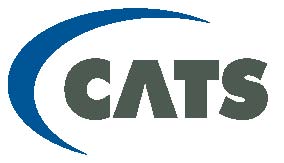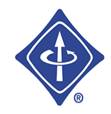Gold Sponsors |
|
|
  |
|
|
| Plenary Speakers
Helen Greiner, Droid Works : Commercializing Disruptive Technology
Bradley Nelson, ETH Zürich : Micro and Nano Robotos
Andy Pope, GlaxoSmithKline : The Evolution of Automation for Pharmaceutical Lead Discovery
Helen Greiner
CEO of CyPhy Works and Founder of iRobot
Commercializing Disruptive Technology
Ms. Greiner will speak about commercializing disruptive technology. Using mobile robots as a specific example, she will talk about the challenges and pitfalls of taking research from the lab to the marketplace and make observations on getting disruptive technology to users (soldiers and consumers). The talk will highlight new possibilities enabled by the current robotic successes. Ms Greiner will finish with thoughts on industry collaborations including the Robot Clusters in specific geographic regions and the Robotics Technology Consortium, of which she is serving as the elected President (www.roboticstechc.org).
Helen Greiner is CEO of CyPhy Works, Inc, a startup company whose mission is to be a “SkunkWorks” for robotics. She is a co-founder of iRobot, a ~$300Million business and the global leader of practical robots. Ms Greiner served as President of iRobot until 2004, Chairman until October 2008, and currently serves on the iRobot Board. While at iRobot, she developed the strategy for and led iRobot's entry into the military market place. She served as the Principal Investigator on the DARPA program that created the original PackBot Tactical Mobile Robot, of which over 3,000 have now been deployed. At iRobot, she helped create a culture of practical innovation and performance that led to the creation of the iRobot Warrior, PackBot EOD, SUGV, and successful participation in many other DARPA, Army and Navy research programs. Ms. Greiner also ran iRobot's financing projects which included raising $35M venture capital and a $70M initial public offering. Before starting her new venture, she led iRobot's investment in a deployable Flash LADAR and acquisition of Nekton, an Unmanned Underwater Vehicle (UUV) company. Greiner holds a bachelor's degree in mechanical engineering and a master's degree in computer science, both from MIT. She was presented with an honorary PhD by WPI in 2009.
Ms. Greiner is highly decorated for her contributions in technology innovation and business leadership. She was named by the Kennedy School at Harvard in conjunction with the U.S. News and World Report as one of America's Best Leaders and was honored by the Association for Unmanned Vehicle Systems International (AUVSI) with the prestigious Pioneer Award. She has also been honored as a Technology Review Magazine "Innovator for the Next Century," invited to the World Economic Forum as a Global Leader of Tomorrow, and has been awarded the DEMO God Award at the DEMO Conference. In 2003, she was named one of the Ernst and Young New England Entrepreneurs of the Year and has been inducted in the Women in Technology International (WITI) Hall of Fame. Her 20+ years of experience in robotic technology includes work at NASA's Jet Propulsion Laboratory and MIT's Artificial Intelligence Laboratory. Ms. Greiner is a Trustee of the Boston Museum Science, Massachusetts Institute of Technology (MIT), National Defense Industrial Association (NDIA), Autonomous Unmanned Systems Vehicle International (AUVSI), the Massachusetts Technology Leadership Council (MTLC), and the US Army War College Board of Visitors. Ms. Greiner serves as the elected President and Board Member of the Robotics Technology Consortium (RTC) - a 180 member industrial/academic group.
Top |
 |
Bradley Nelson
Professor of Robotids and Intelligent Systems, ETH, Zürich.
Micro and Nano Robotos
Microrobotics has recently entered the phase in which sub-mm sized autonomous robots are being realized. While the potential impact of these devices on society is high, particularly for biomedical applications, many challenges remain in developing genuine microrobots that will be useful to society. This talk will focus on applications of microrobots as well as approaches to their locomotion in liquid and on solid surfaces. Issues in the design of external systems for providing energy and control of microrobots must be considered, and the use of externally generated magnetic fields in particular appears to be a promising strategy. Theoretical and experimental issues will be discussed, functionalization of the devices, and efforts to scale microrobots to the nanodomain will be presented.
Brad Nelson is the Professor of Robotics and Intelligent Systems at ETH Zürich. His primary research focus is on microrobotics and nanorobotics with an emphasis on applications in biology and medicine. He received a B.S.M.E. from the University of Illinois at Urbana-Champaign and an M.S.M.E. from the University of Minnesota. He worked as an engineer at Honeywell and Motorola and served as a United States Peace Corps Volunteer in Botswana, Africa, before obtaining a Ph.D. in Robotics from Carnegie Mellon University in 1995. He was an Assistant Professor at the University of Illinois at Chicago (1995-1998) and an Associate Professor at the University of Minnesota (1998-2002). He became a Full Professor at ETH Zürich in 2002.
Prof. Nelson has been awarded a McKnight Land-Grant Professorship and is a recipient of the Office of Naval Research Young Investigator Award, the National Science Foundation Faculty Early Career Development (CAREER) Award, the McKnight Presidential Fellows Award, and the Bronze Tablet. He was elected as a Robotics and Automation Society Distinguished Lecturer in 2003 and 2008 and won Best Paper Awards at major robotics conferences and journals in 2004, 2005, 2006, 2007, 2008 and 2009. He was named to the 2005 “Scientific American 50,” Scientific American magazine’s annual list recognizing fifty outstanding acts of leadership in science and technology from the past year for his efforts in nanotube manufacturing. His laboratory won the 2007 and 2009 RoboCup Nanogram Competition, both times the event has been held. He serves on the editorial boards of several journals, has served as the head of the Department of Mechanical and Process Engineering from 2005–2007, and is currently the Chairman of the ETH Electron Microscopy Center (EMEZ).
Top
|
 |
Andy Pope
Director, Screening & Compound Profiling
Molecular Discovery Research
GlaxoSmithKline
The Evolution of Automation for Pharmaceutical Lead Discovery
Screening libraries of compounds against biological targets in order to identify starting points for medicinal chemistry plays an absolutely central and crucial role in early drug discovery. Over the last two decades, a whole discipline has emerged around the science, technology and process of compound screening, allowing this to be performed with unprecedented scale, speed and quality.
The use of automation and new technologies (e.g. to handle liquids and detect biological assay signals) has, and continues to, play key role in this field. This presentation will review, from the specific perspective of screening and compound profiling with GSK, the journey to the present state-of –the-art and prospects for the future. In particular, the role of “size sized” automation, and the interplay between automation, new technologies, “deep science”, organizational culture and data/process/knowledge integration will be explored.
Dr. Andy Pope is Director of Screening & Compound Profiling (SCP) within Molecular Discovery Research, GlaxoSmithKline. His group performs a range of hit identification approaches to support multiple therapeutic areas. This includes High Throughput Screening, DNA-Encoded Library Screening, drug target class-based Focused Screening and Drug fragment-based approaches. In addition, SCP supports drug discovery programs from lead definition to drug candidate selection through profiling of compounds against a wide range of biological assays. This includes primary and selectivity targets, in vitro and cellular approaches, compound mechanism of action, and assays designed to predict drug safety and ADME properties. Via a global approach to profiling, GSK discovery programs have access to >750 biological assays, providing comprehensive annotation of the properties of potential drug molecules, aimed at improving clinical attrition; a key issue for the Pharmaceutical Industry. Andy has worked in the Pharmaceutical industry for more than 20 years, in various roles in the area of the development and use of biological assay technology. He has a D.Phil in Biophysics from York University in the UK, and has authored >50 research publications. He moved to the USA following the formation of GSK in 2001.
Top |
 |
|

